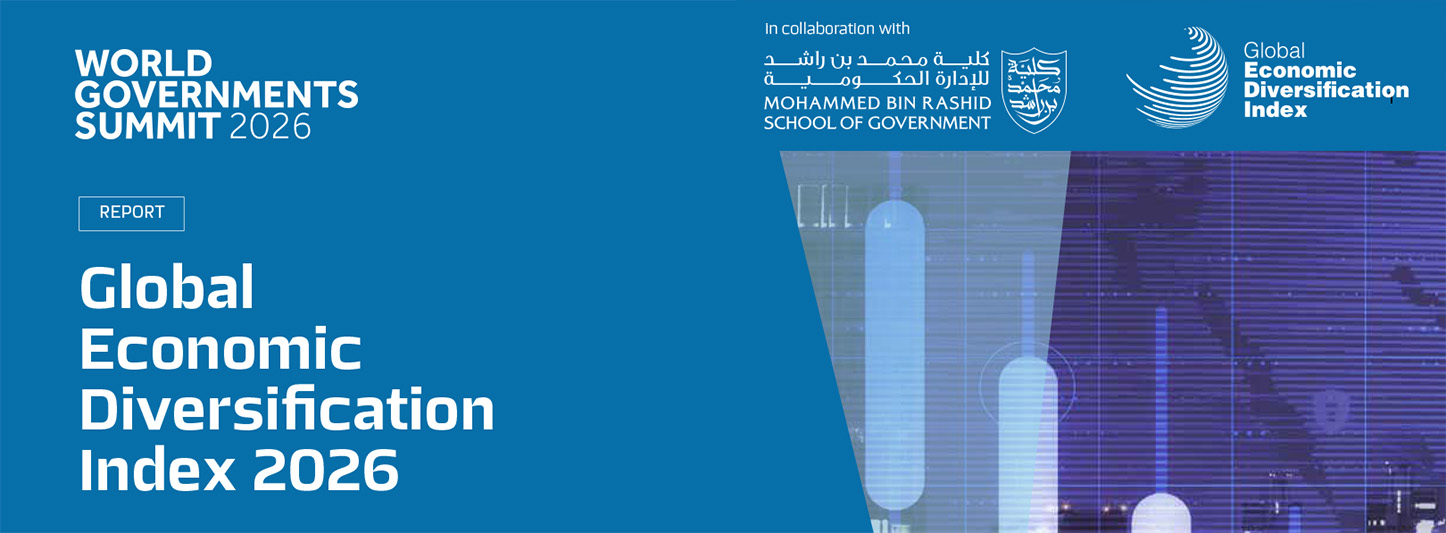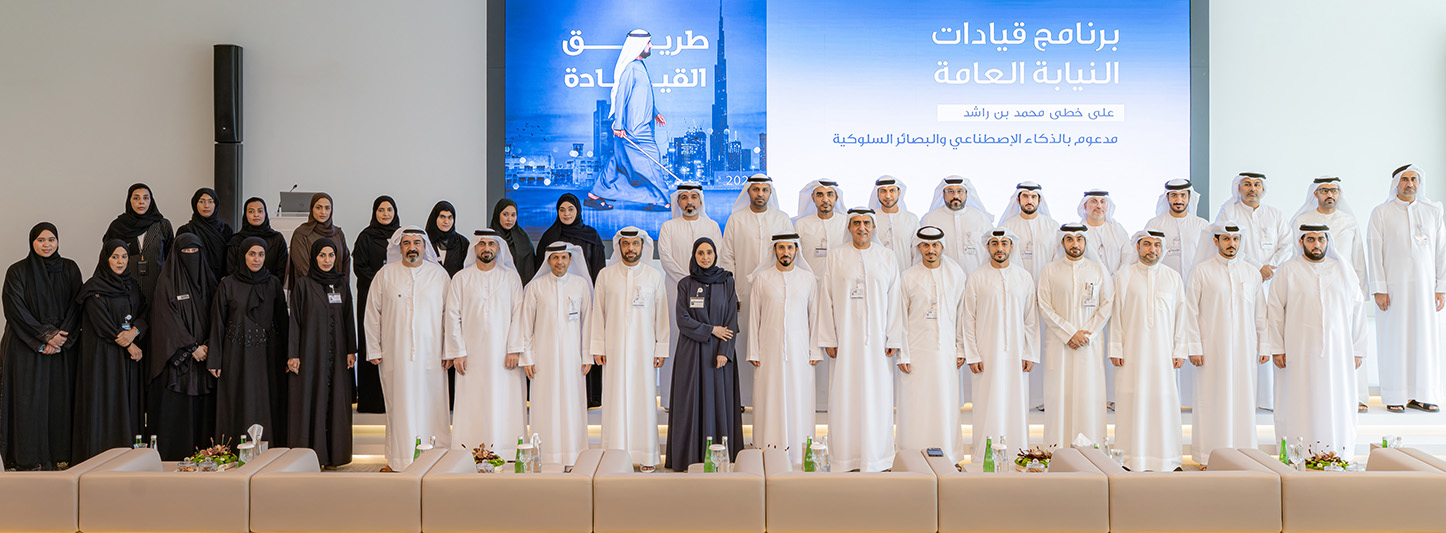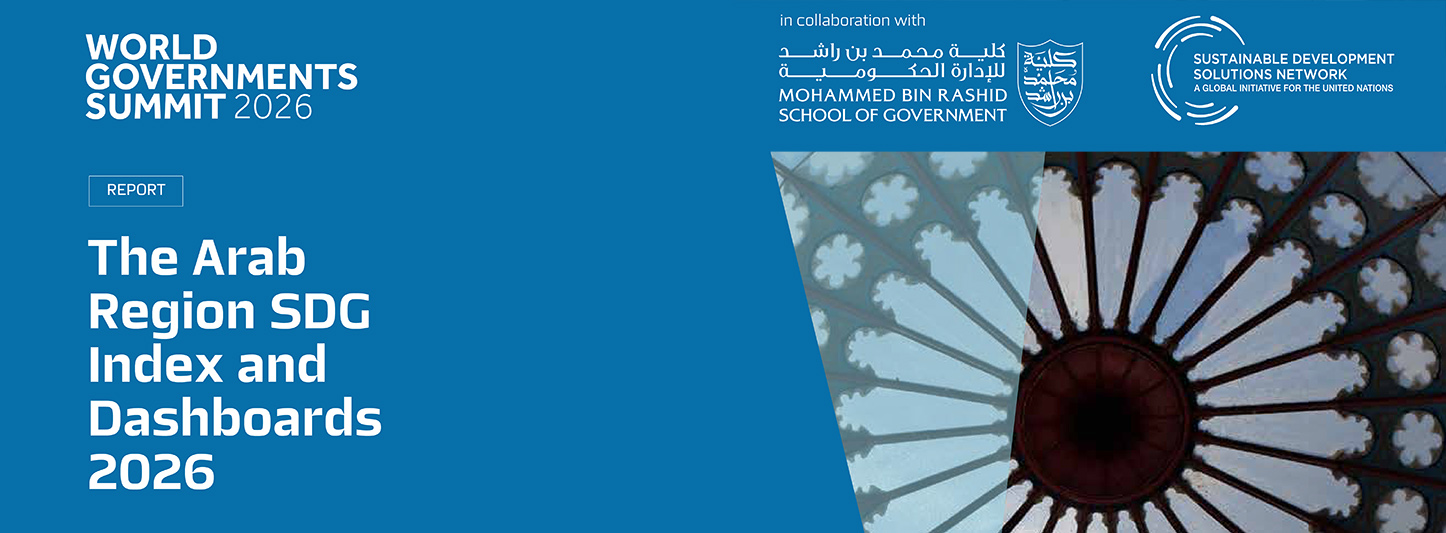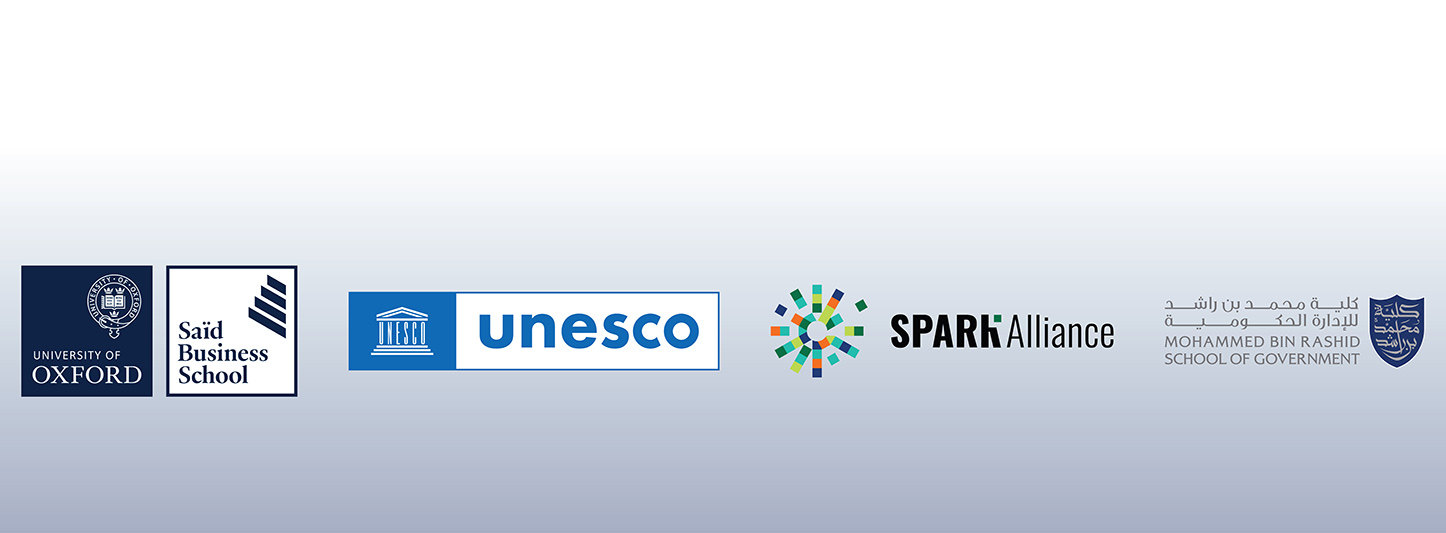Latest Publications View All
The Arab Region SDG Index and Dashboards Report 2026 provides a comprehensive assessment of the region’s progress on the Sustainable Development Goals (SDGs), offering key insights into sustainable development trends, regional challenges, and pathways to resilience-building.
The Arab region’s overall SDG score stands at 60.6, with Algeria, Egypt, Jordan, Morocco, Tunisia, and the UAE achieving at least two-thirds of the total score. However, Least Developed Countries (LDCs) and conflict-affected nations continue to fall below the regional average. The report highlights stark disparities, underscoring the need for targeted efforts to close development gaps and build resilience.
Key challenges include SDG 5 (Gender Equality), where all Arab countries score low, and SDG 16 (Peace, Justice & Strong Institutions), which remains significantly impacted by regional conflicts. SDG 2 (Zero Hunger) presents concerns related to nutrition and unsustainable agricultural practices, while SDG 8 (Decent Work & Economic Growth) highlights persistent unemployment in several countries, particularly among the youth.
Despite these challenges, progress is observed in SDG 9 (Industries, Innovation & Infrastructure), driven by digital infrastructure growth, and SDG 6 (Clean Water & Sanitation), with improvements in basic water services. However, water stress and environmental sustainability remain pressing concerns, with SDG 14 (Life Below Water) and SDG 15 (Life on Land) requiring urgent interventions.
Encouraging trends in SDG 3 (Good Health & Wellbeing) reflect improvements in child health. Persistent data gaps remain particularly in SDG 10 (Reduced Inequality) and SDG 1 (No Poverty), highlighting the need for stronger national statistical systems.
The Arab Region SDG Index and Dashboards 2026 is a vital tool for policymakers, researchers, and stakeholders to develop evidence-based strategies for advancing sustainable development.
Climate change, a growing threat to our societal and economic stability, is predicted to cross the 1.5 degrees Celsius threshold by 2027, leading to extreme climate changes and mass biodiversity loss. These changes impact social, economic, and environmental systems in complex, interconnected ways. Thus, there is a pressing need for effective strategies to increase resilience and mitigate the associated risks. Digital technologies, including AI, data analytics, blockchain, and IoT, are emerging as crucial tools in this battle, offering the potential to transform climate change preparedness. Climate technology, though still an emerging field, is becoming a necessity for survival and societal sustainability. It ranges from high-profile applications like geoengineering and carbon capture to low-profile innovations like renewable energy technologies. The ability to collect and analyze vast amounts of environmental data is key to understanding climate vulnerabilities and developing targeted interventions. This policy brief aims to help stakeholders understand how digital technology can fortify climate change preparedness.
Dubai Policy Review Vol 2.: Smart Cities: The Catalyst for Sustainable Development?
Can smart cities help us achieve true sustainable development? With merely a decade to go to deliver on the 2030 agenda and the universal Sustainable Development Goals (SDGs), digital development is seen as a forceful catalyst that can help governments close developmental gaps and accelerate progress. In particular, smart and sustainable cities are becoming microcosms of policy and governance transformation challenges we face in our drive towards achieving the SDGs. They are the juncture where the governance issues we face in addressing developmental goals intersect with the promises—and challenges—of the digital future. Additionally, they are also the arena where policy innovations and governance dilemmas emerge and interact.
How can Arab governments navigate these major double-edged transformations? More importantly, how can they do so rapidly, but safely; with agility, but also with inclusiveness that leaves no one behind? In other words, how can we deliver on the promises of smart cities, ‘digital by default’ governance, data-driven public policy, knowledge-based digital economies and artificial intelligence adoption across the governance apparatus? How can we succeed in reaching these grand goals sustainably, without causing harm to society, damaging decades-old economic models, destroying established safety nets, infringing on personal rights or causing social unrest? What types of policy instruments do we need? Which public administration tools would suit the region’s context? What governance structures would help achieve local, as well as global, objectives? Finally, what combination of skillsets and capabilities do governments need to respond to challenges faced by their populations and not others?
As you read through the thought-provoking contributions in this edition, the link between sustainable development on the one hand, and smart cities and digital development on the other, becomes clear. When smart cities fail, they create expensive lost opportunities for development, and may lead to urban and social decay (Pardo). However, assessing if they are succeeding and measuring their performance towards the future is highly complex and can lead to different pathways (Lanvin). Moreover, cities will soon host the majority of the world’s population. If we are to really “leave no one behind”, then having cities that grow ‘smart’, but become less accessible, will be a step backwards for many of the sustainable development goals (Pineda and Poitier). Meanwhile, in the Arab region, we now know which of the SDGs we are lagging behind on, what local data to gather, how to prioritize and the urgency of regional coordination (Luomi). We have global lessons on the novel governance structures and innovative policy approaches we can establish (Fyson, Lindberg and Morales, OECD). Moving ahead towards a sustainable future will also require painful economic transformations and tradeoffs (Arezki, World Bank). These command adopting agile governance approaches and taking painful steps to respond to the pressing social changes of the digital age (Santiso, CAF Development Bank). They require comprehensive policy instruments that inform, measure and drive impact and value in complex policymaking ecosystems (Andrews and Samji). However, given the monumental challenges the region faces, governments cannot lead this transformation alone. They need to empower societal leaders and collaborate with change-makers willing to drive large-scale developmental interventions (Jalbout). At a strategic level, governments in the region need to apply a holistic agenda for development that embraces digital transformation at the core (El-Sherbiny, UN ESCWA). A key part of which will rely on building a future-facing digital economy that adapts to the knowledge economy era (Al-Khouri). However, to achieve these ambitious developmental goals, nations have to find their own formulas for adopting novel transformations, such as data-driven and AI-enabled digital government (AlDhaheri).
The Dubai Policy Review (DPR) is published by the Mohammed bin Rashid School of Government with the aim of contributing to the advancement of future governance and public policy, through rigorous, accessible and actionable thought-leadership and practice-oriented knowledge. The journal targets the policy and government community with the objective of contributing to higher government quality, better government practice and informing future policymaking directions. The Dubai Policy Review (DPR) offers authoritative insight on future trends in public policy and government practice from global thought leaders in diverse public policy domains. These include, but are not limited to, innovation, digital transformation, social policy, economics, political science, management, leadership, wellbeing and sustainable development.
The DPR is published in print and online at www.DubaiPolicyReview.ae and is available in Arabic and English.
Read more at: https://dubaipolicyreview.ae/about-dubai-policy-review/
In a growing global city such as Dubai the existing road transport infrastructure has been struggling to accommodate a steadily growing population over many years. In spite of Dubai’s heavy investment of AED 60 billion over the past decade in building roads, a metro network and expanding other modes of public transportation like public buses, marine transit and taxi services (Gulf News, 7 February 2015), traffic congestion on its roads remains a pressing reality. Even fiscal measures, such as the introduction of Salik (a selective road toll) in July 2007 and the lifting of fuel price subsidies in August of 2015, have not had a significant impact on traffic flow or congestion. The growing population, sustained economic growth, a continued inflow of expatriates and the upcoming Expo 2020 combine to pose a significant and ongoing challenge for policy makers. Indeed, new approaches need to be explored in order to achieve and sustain efficient transport policy outcomes in Dubai, particularly with regard to traffic congestion and environmental protection. This Policy Council is intended to address existing challenges in the transport sector, future scenarios, government initiatives and the role of public private partnerships (PPPs) in addressing these challenges.
Latest News View All





 For an optimal experience, please
For an optimal experience, please